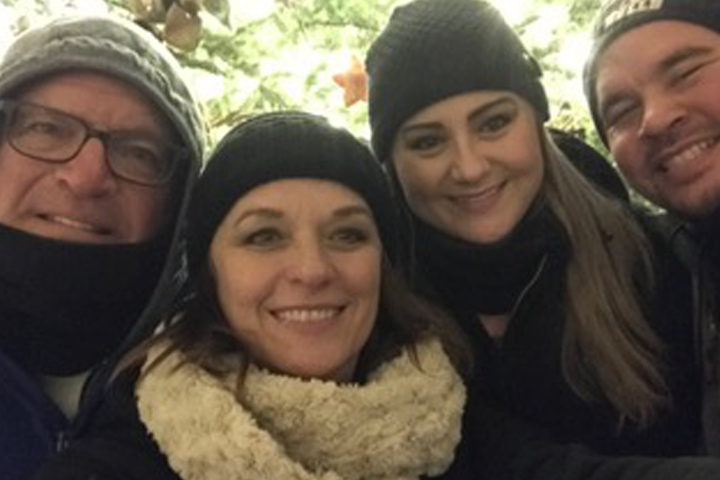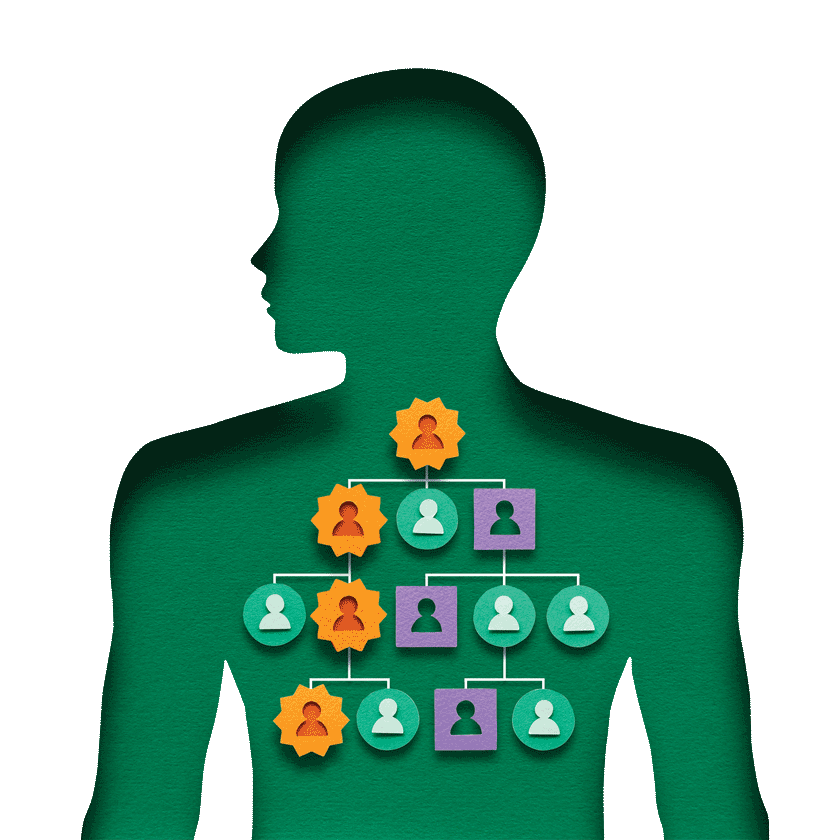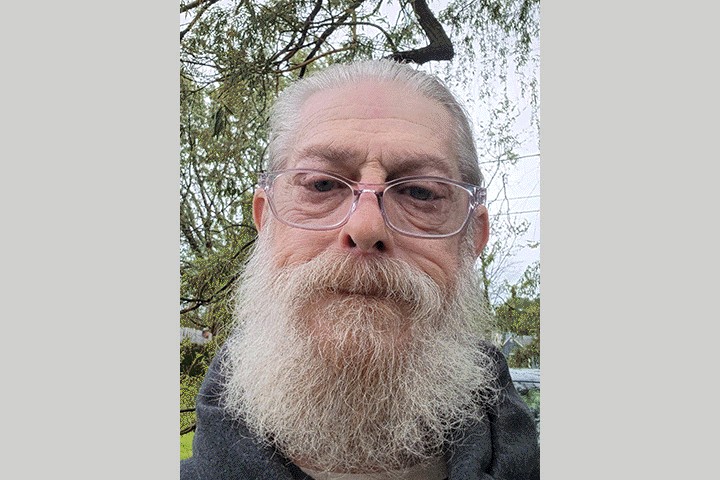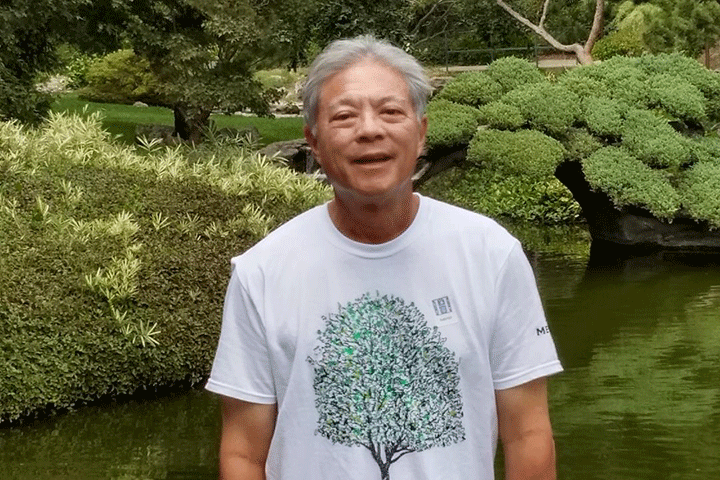Surviving a Pancreatic Neuroendocrine Tumor

- Exploratory surgery discovers a pancreatic tumor
- Distal pancreatectomy removes the pancreatic neuroendocrine tumor
- Follow-up exams but no further treatment because there was no standard of care
- Now exploring genetic testing
It started in 1998, when at age 33, I was having major digestive issues that were a mystery to my doctors.
I began having all kinds of tests—blood tests, urine tests (such as the 5-HIAA test), and an ultrasound. After eight months of testing I was still progressively getting worse. My GI doctor, Stuart Borken, M.D., knowing there was something wrong (but none of the tests he ordered pointed to a source), finally decided to refer me to a surgeon, who ordered an exploratory abdominal surgery. I went to Dr. Michael Schwartz, at Abbott Northwestern Hospital in Minneapolis. During surgery, a small tumor was found in the tail of my pancreas. As a result, I had a distal pancreatectomy and splenectomy. Afterward the tumor was examined in the lab, and it was determined that it was a pancreatic neuroendocrine tumor (PNET).
Following Up After the Shocking Diagnosis
The diagnosis was a complete shock to me and my family as there was no known history of any type of pancreatic cancer in our family. Although my surgery was in Minneapolis, my doctors sent me to the Mayo Clinic (Rochester, Minnesota) for follow up, because the kind of cancer I had was so extremely rare that they had never seen a case.
I met with Dr. Steven Zeldenrust at Mayo, and found out that there was no chemotherapy standard of care for PNET. Since my surgery was deemed successful, I was followed closely at Mayo for five years.
Initially I had appointments every three months, where they did an endoscopic ultrasound (EUS), CT scan, and blood work. The time between appointments was stretched to every six months, and then annually until I hit the five-year mark. At that point, Dr. Joseph Rubin, the doctor I was then seeing, “graduated” me out of oncology.
My Post-Graduation Life
For about a dozen years after my “graduation,” I put the whole thing behind me. I had to adjust to a different GI system, but overall I was able to manage my “new normal” and I went on with my life.
In 2012, I started volunteering with the Pancreatic Cancer Action Network Minnesota Affiliate (PanCAN). After learning more about PNET from the other survivors I met through PanCAN, I decided it was a good idea to resume being observed. I found Dr. Thomas O’Dorisio, a specialist at the University of Iowa (Iowa City), who I now see annually for CT scans and blood work (Dr. O’Dorisio passed away after this article was published). Through the knowledge I gained being involved with PanCAN, I discovered that genetic testing might be beneficial to me and my family. I had known about genetic testing for a few years but held off on getting tested until I knew that the science had caught up enough for there to be actionable things that could be done based on the results. I am currently in the process of getting tested.
I still volunteer for the Pancreatic Cancer Action Network Minnesota Affiliate, as PurpleRideStride Event Chair. As a pancreatic neuroendocrine cancer survivor I know my odds are much more favorable than an adenocarcinoma survivor, however the more I’ve learned about this disease through this organization as well as seeing the number of fellow survivors that we have lost, makes me realize each day how lucky I am.






